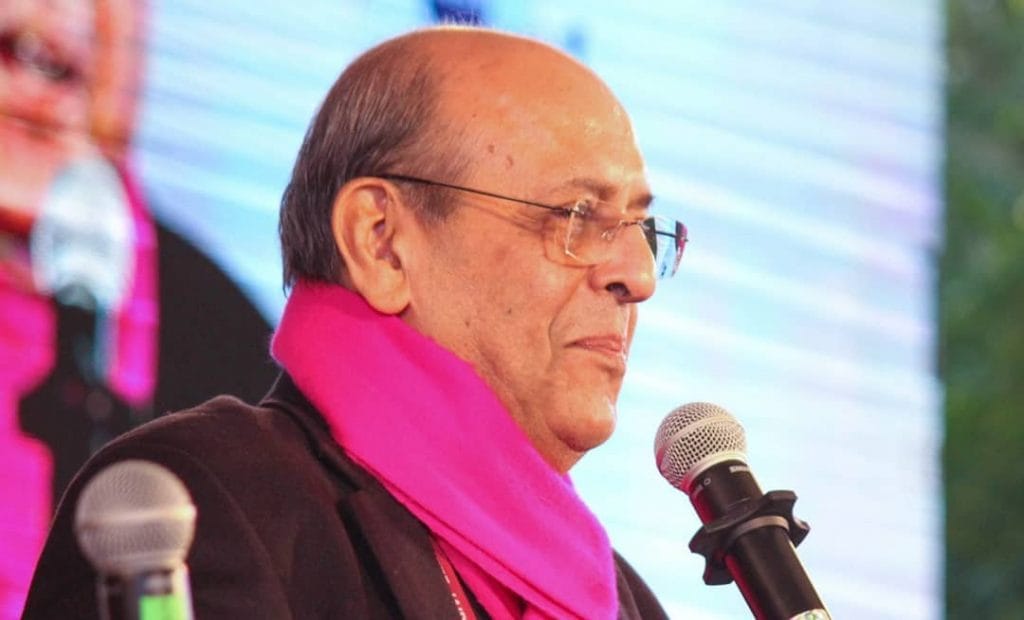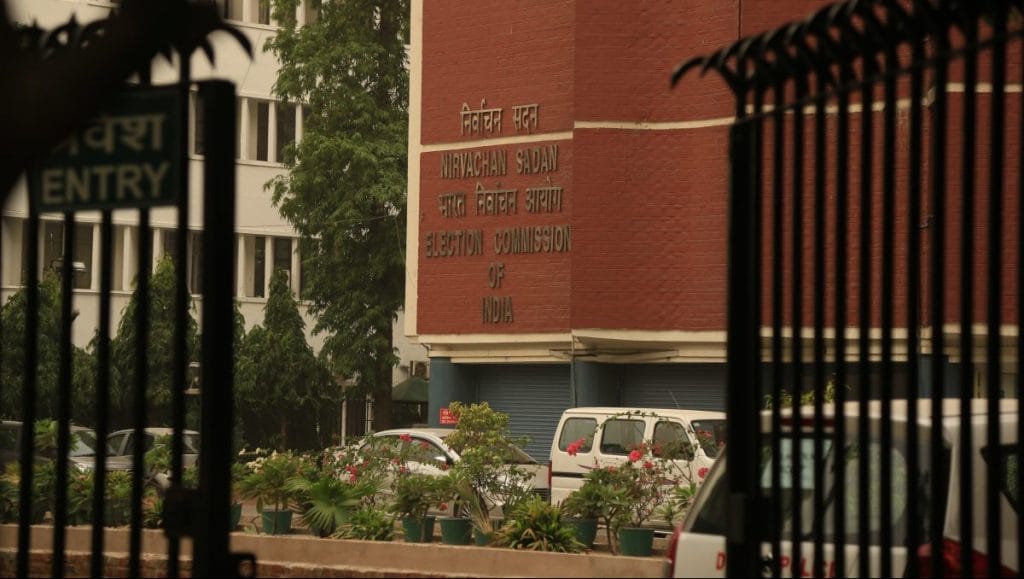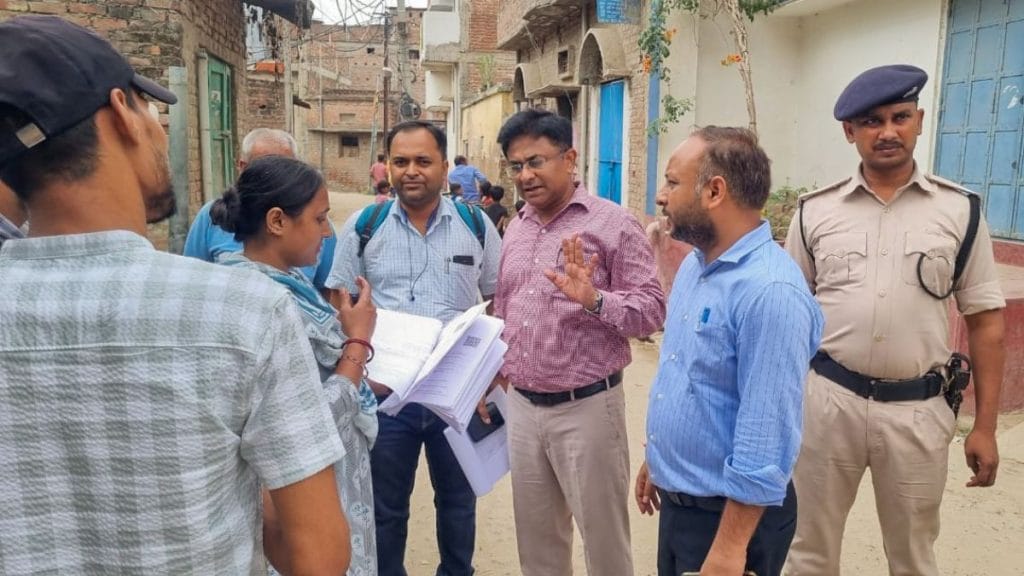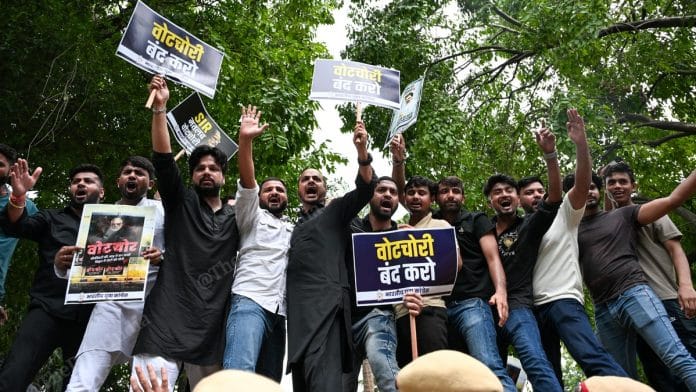The Election Commission has been loudly attacked in recent weeks over political bias and ‘rigged elections’. For those readers who see this issue only through a contemporary lens, this writer felt that a little bit of history might not be out of place. They can judge matters from a more informed perspective, rather than from one-paragraph social media posts.
Let us start with what the Constitution says about the Election Commission. The Constitution simply states that independent election commissioners are to be appointed by the President of India. No detailed process is prescribed. In our Republic, this has pretty much automatically meant that the President would sign off on appointments recommended by the Union Cabinet. That the President must act on the “advice” of the Central Cabinet has been reaffirmed time and again, including by our Supreme Court in its judgements.
For decades, these appointments were made based on Cabinet recommendations. There is no evidence of any formal or even informal consultative activity on the part of the Cabinet. In keeping with the default option favoured by our governments, election commissioners were invariably picked from among senior or retired civil servants—first from the ICS (such as Sukumar Sen and KVK Sundaram), and later the IAS (like TN Seshan). Election commissioners performed their role either intrusively or desultorily, depending on their different approaches. Seshan, for instance, was known for being assertive and is largely credited with reducing proclivities for the rigging of elections, which comes up as a recurring problem in all democracies.
Now let us address recent choices regarding election commissioners.
Also Read: Bihar voter list revision is not anti-democratic—India can’t let illegals influence polls
Naveen Chawla to new ‘process’
In May 2005, the UPA government appointed a well-known IAS officer called Naveen Chawla as an election commissioner. He had been named in the report of the Shah Commission, which had been constituted under retired Justice JC Shah to investigate the excesses committed during the Emergency.
Subsequent Congress governments deliberately suppressed the Shah Commission report. It was removed from all libraries, and even the National Archives. A copy was fortuitously discovered by the brilliant and intrepid former parliamentarian Era Sezhiyan, in his home library. Hence, we now have access to this report, although the print run was small and there are not many copies floating around.
Chawla’s appointment by the Congress/UPA government came in the days before any formal process existed for these appointments.
But in 2009, the retiring Chief Election Commissioner N Gopalaswami wrote a letter to the President advising against the elevation of Mr Chawla to the post of the EC’s chief. Nevertheless, the Congress/UPA government chose to ignore this advice. Chawla was duly appointed Chief Election Commissioner.

Given ongoing concerns about the choices different governments have made in appointing election commissioners, litigation reared its head. The Supreme Court was approached and asked to examine the “process” for the appointment of election commissioners. the Constitution states that independent officials like the Comptroller and Auditor General and election commissioners are to be appointed by the President. The Supreme Court intervened. It opined that Parliament should pass a law laying out a process for the appointment of election commissioners. Until such a law was passed, the Chief Justice of India was to be made a member of the selection committee. In 2023, Parliament passed a law and created a committee. This is, of course, in keeping with the unwavering dharma of our great country to create committees at the drop of a hat.
The newly minted committee has met. There have been expected boycotts. Nevertheless, the quorum seems to have been sufficient, and appointments have been made based on this new “process”.
Sound and fury continues
None of the appointments has been unusual. Election commissioners have been senior, retiring or retired civil servants, in keeping with our hoary tradition that most, if not all, national wisdom rests with successful candidates in exalted UPSC examinations. None of these persons appears to have featured in the reports of judicial commissions. Nevertheless, ad hominem attacks against election commissioners have become quite loud these days.
There have also been a lot of comments about resignations by a couple of Election Commissioners. About five years ago, one of them resigned to take up a job overseas in a UN-supported organisation. This job offers a tax-free, dollar-denominated salary and a similar pension on retirement. It is universally acknowledged that Indian civil servants love these jobs. A person of unquestioned competence and integrity like the late Dr Manmohan Singh had opted for such a job. The other EC, who resigned last year, has now been appointed as an ambassador.

It is not this writer’s case that these two resignations were not part of a wicked political pressure tactic. They may very well have been. But neither of these individuals has brought this up in public or taken the matter to court. Over the decades, hundreds of civil servants have sued the state on grounds of harassment or unlawful treatment. It appears to this writer that they would make such moves if they were aggrieved. To keep up a whispering campaign without any support from the so-called affected parties is easy. It is also irresponsible.
All appointments, retirements, promotions, early retirements, transfers, and resignations can be questioned. This can only make the difficult task of governing this discordant country that much more difficult.
Lazy outrage over voter rolls
The current issue making the rounds in imperial, imperious Delhi is that voters’ lists are being either incorrectly inflated or improperly reduced. It is a well-known proposition in statistics that in exercises like these, Type I errors and Type II errors can arise. Voters who should not be on the rolls may be included. Contrariwise, voters who should be on the list may be excluded.
It is a matter of detail as to what documentation will be required by the commission. Whatever is specified can be criticised as too much, too little, or inappropriate. Again, as is our national habit, we have taken recourse to litigation. These proceedings are televised and provide endless material to multiple podcasts in multiple languages. The podcast industry is definitely emerging as a sunrise sector.
Now, in all fairness, there is a process to challenge and rectify Type I and Type II errors in the voters’ lists. The draft lists are published, and citizens as well as political parties are given several weeks to challenge them and seek changes. Quite frankly, this “process” is adequate to ensure the integrity of the lists. There is no need to keep interrogating and bothering election commissioners over their choice of documents or timing.

This—timing—is another contentious issue. If the rolls are revised many months before an election, the action can be criticised for freezing the lists too early. If the revisions are made too close to the election, then sinister conspiracies can be imagined. These criticisms are irrelevant. If any citizen has a problem with the lists, they can challenge them in a sober and proper manner and have the matter thrashed out. Aye, there’s the rub! Challenging lists can only be done through painstaking, laborious effort. Names have to be verified booth by booth, constituency by constituency. They have to be compared with earlier lists. Deletions have to be investigated and understood. Additions have to be checked for accuracy.
All this requires hard work on the part of political parties, their members, and their officials. And why bother to go in for hard work? It is so much easier to make ad hominem attacks on officials who are not protected by the weapon of “contempt” and who are left with no option but detailed rebuttals, which are not found interesting by podcasters. So, we have this cacophonic democracy running around in circles.
Now let us take a look at the core content of the concerns. It cannot be anybody’s case that Bangladeshi citizens should be allowed to vote in Indian elections. Bangladeshi citizens residing in India could either be Hindu, Buddhist or Christian refugees fleeing persecution in their erstwhile homeland. Or they could be Bangladeshi Muslims coming to India in search of economic betterment. The accepted opinion is that the former are likely to be BJP/NDA voters, and the latter are likely to be Congress/INDIA alliance voters.
If the Election Commission excludes voters who, in its opinion, have been added wrongly and illegally to the rolls, the obvious solution is to counter those exclusions with documentation and information—which can even be put out in the public domain.
Asking voters to prove their bona fides cannot be construed as harassment, even if it does inconvenience some of them. And what are political parties there for? Should they not be in the forefront, armed with reams of papers and affidavits, to support their voting base? But of course, this requires hard work, and that appears to be at a discount.
Where Nehruvian logic works
There is another concern gradually emerging from the woodwork. India is a country of internal migrants. Where should migrants vote? This issue has come to the fore because there are currently many Bihari migrants living in different parts of the country. The Election Commission should in this writer’s opinion, correctly taken the position that such persons should vote where they live, and not where they were originally from.
This is a question that goes back to the earliest days of free India. The redoubtable historian Ornit Shani, while undertaking her painstaking research, stumbled across correspondence from the state of Travancore-Cochin in the early 1950s. It had been addressed to Delhi, suggesting that Tamil-speaking residents of Travancore-Cochin should vote in the then existing Madras State. Similarly, officials in Assam were of the opinion that Bengali-speakers in Assam should vote in West Bengal. To the credit of Nehruvian Delhi, these suggestions were summarily rejected. Citizens would vote where they lived, irrespective of linguistic affiliations or prior residence patterns. Our Constitution does, after all, guarantee citizens the right to live anywhere in the country. This is an extremely important and positive Nehruvian position that pretty much defines our Republic.
Incidentally, if the suggestions emanating from Travancore-Cochin had been accepted, it is quite possible that Kanyakumari today may have been part of Kerala, and not of Tamil Nadu. Something to think about.
The issue of temporary migrants can be easily resolved using an approach similar to that used by our Income Tax Department. Continuous residence of more than 180 days can be taken as the basis for determining the residence of the voter. Poorer citizens from marginalised parts of our society already spend time and money (including lost wages) to travel for festivals or in case of deaths in the family. To ask them to travel in order to vote in panchayat, assembly and parliamentary elections would constitute an impossible burden. It would effectively imply disenfranchising them completely.
Also Read: Not ‘One Election’, India needs a just election. Step one is an impartial EC
EVM bogey
Now to get to the elephant in the room: EVMs. A couple of years ago at a gathering, this writer encountered a know-all individual of a type common in our country. This person argued that all EVMs were fixed. This writer was forced to explain his credentials in the IT industry and then state a few things about EVMs.
Indian EVMs were developed by Bharat Electronics and the Electronics Corporation of India Limited. Whether this was done consciously or otherwise, a choice was made to make each EVM a standalone device, with no connectivity—or even the possibility of connectivity—to any other device or network. This means that no cyber-attacker can get into the machines through the internet or even an ordinary phone line. The software inside the EVMs is very limited, used primarily for tabulation. It is “read only” code, which means that one cannot introduce trojans or malware. The EVMs have a ruggedised design and function reliably under harsh temperature and humidity conditions. They do not resemble devices used in places like the US, where they are networked and software-heavy.
Either because of the brilliance of the Indian designers, or on account of some fortuitous divine interference, our EVMs are simply the ideal election machines for anywhere in the world. We should actively try to export them.
Despite the obvious functional integrity of EVMs, we have taken to the obsessive national pastime of litigation. Once again, the Supreme Court intervened and ruled that a certain percentage of EVM outputs should be matched with VVPAT paper trails. This feature has been implemented. Except for one documented case of an avoidable and trivial error in the 2019 Lok Sabha elections, all EVM outputs have matched with the paper trails.
Railing against indigenously developed technological marvels such as EVMs simply reinforces tendencies in our country that appeal to anti-modernism and technophobia.
The hoo-ha about the Election Commission, about electoral rolls, and about EVMs suggests that irksome comic relief remains a part of the loud debates of our robust democracy. Perhaps we can also try to find other topics for loud debates.
Jaithirth ‘Jerry’ Rao is a retired entrepreneur who lives in Lonavala. He has published three books: ‘Notes from an Indian Conservative’, ‘The Indian Conservative’, and ‘Economist Gandhi’. Views are personal.
(Edited by Asavari Singh)







Mr. Jaithirth Rao…a notable who intellectually pleads for a fictitious right-wing while politically supporting the expediently unhinged…bludgeons the reader with another of his over-stuffed, ill-formed, imperious rants.
As always, his opinion piece is peppered with summary observations and warped truisms, like: “It is universally acknowledged that Indian civil servants love these jobs. A person of unquestioned competence and integrity like the late Dr Manmohan Singh had opted for such a job.”
(Disclosure: I would love to own a super yacht.)
There are also a few wallops of jargon pertaining to the purported design of our EVMs currently in use, which we all are expected to swallow fully, with blind faith and obedient nationalism. This, from the founder of a company in the tech industry where any purported capability, any given assurance, and any delivered activity are all expected to be substantiated by an armful of third-party certifications, independent reviews, and repeated audits.
One can’t help but wonder why such an eminently public opinion-maker and corporate-figure argues that it suffices for an activity/service…as crucial, significant, massive, and expensive as a state or national election…to be conducted with much poorer assurances than those for a comparatively trifling corporate service contracted by a foreign firm.
The author further continues regarding the same: “…our EVMs are simply the ideal election machines for anywhere in the world. We should actively try to export them.”
To imagine that other countries would purchase our EVMS, remarkable though they may be, without first seeking design details, demonstrations, provision for conducting extended penetration tests…along with the host of certifications, third party validations etc. already alluded to, as is the norm!
The reality is this. For export orders to come, BEL and ECIL will need to provide far greater transparency and assurances to the world-at-large than what is being currently demanded by sceptics within the country.
Are exports of our sensitive military weapons burgeoning solely because of promotions in which tantalizing titbits of product information get revealed in the form of dulcet Urdu couplets?
The justification that gets conveyed in this stentorian article for the establishment’s misdeeds this week seems to be of the same unoriginal essence which is repeatedly used, ad nauseum, by the brethren that rules. Whether it be in the unquestioningly published web pages of ThePrint or be in the sessions of our hallowed Parliament.
Birds do it, bees do it
Nehru and the Congress could not help but do it
Now, it is our turn to do it.
So, the subjects should continue to live with it,
Even the Supreme Being better approve of it:
For we deem that it is righteously Hindu of us to do it.
(Hmm…Dr. Manmohan Singh has now become the paragon of integrity.)
Sigh.
Mr. Jerry Rao…IIM graduate., and thereafter…crooked banker, venal businessman, crony-capitalist, lower-rung oligarch…again bludgeons the reader with another of his over-stuffed, unbalanced, imperiously delivered opinions.
As always, his judgement is peppered with whiplash rebukes and ill-fitting observations, like: “It is universally acknowledged that Indian civil servants love these jobs. A person of unquestioned competence and integrity like the late Dr Manmohan Singh had opted for such a job.”
(Disclosure: I would love to own a super yacht.)
His Eminence has also added generous wallops of jargon pertaining to the purported design and deployment of our EVMs currently in use, which we all are expected to fully swallow, with brimming faith and nationalism. This, from the founder of a tech company in an industry where any purported capability, any given assurance, and any delivered activity are all expected to be substantiated by an armful of third-party certifications, independent reviews, and repeated audits.
Won’t it be natural to wonder how that company, under such leadership and in those times, ever managed to gain trust and fairly obtain any decent, above-board overseas deal? Or alternately wonder why an activity/service as crucial, significant, massive, and expensive as a state or national election in India need be conducted with much poorer assurance (practically…none) than that for a comparatively trifling corporate service contracted by a foreign firm?
For the reader whose brain is likely to have seized midway while labouring through the discursive, stentorian article…the gist of the justification given in it for the establishment’s misdeeds this week is the same unoriginal essence which keeps getting repeatedly used, ad nauseum, by the brethren that rules. Whether it be in the unquestioningly published web pages of ThePrint or be in the sessions of our hallowed Parliament.
Birds do it, bees do it
Even educated fleas do it
Nehru and the Congress could not help but do it
Now, it is our turn to do it.
So, the subjects should continue to live with it,
Even the Supreme Being better approve of it:
For we have deemed that we act for all Hindus
and it is righteous of us to do it.
(Hmm…Dr. Manmohan Singh has now become the paragon of integrity.)
Incidentally, if the suggestions emanating from Travancore-Cochin had been accepted, it is quite possible that Kanyakumari today may have been part of Kerala, and not of Tamil Nadu. Something to think about.
Can Jerry Rao be requested to kindly explain this